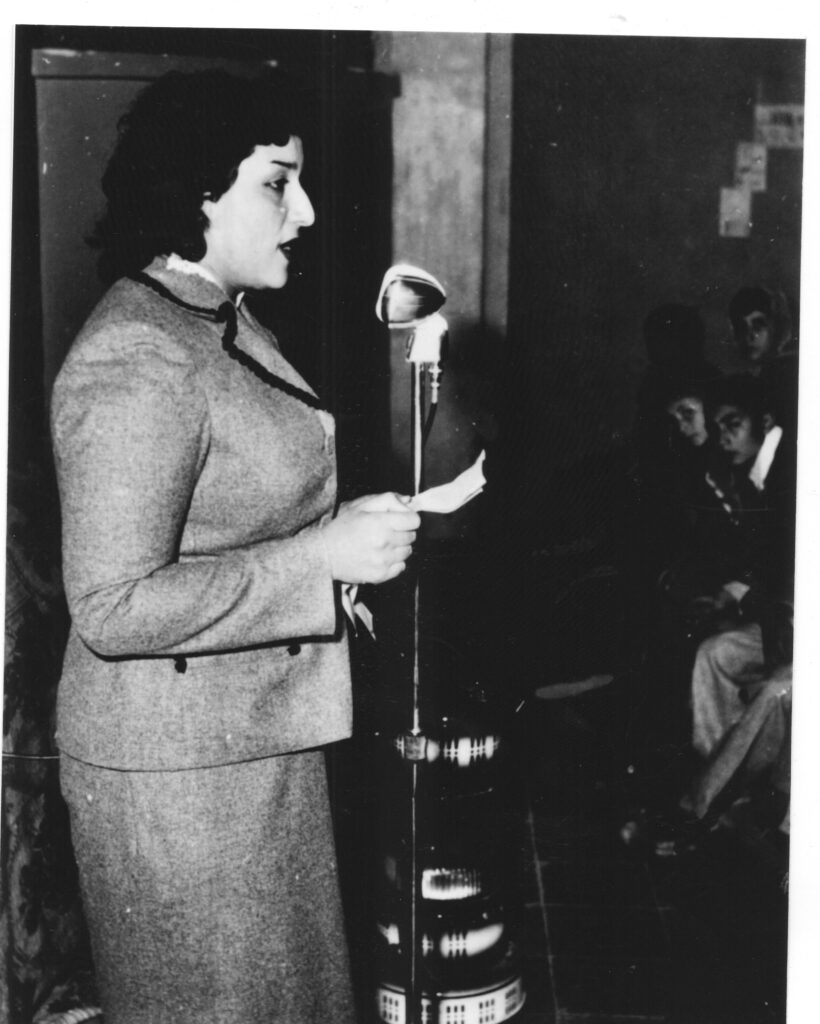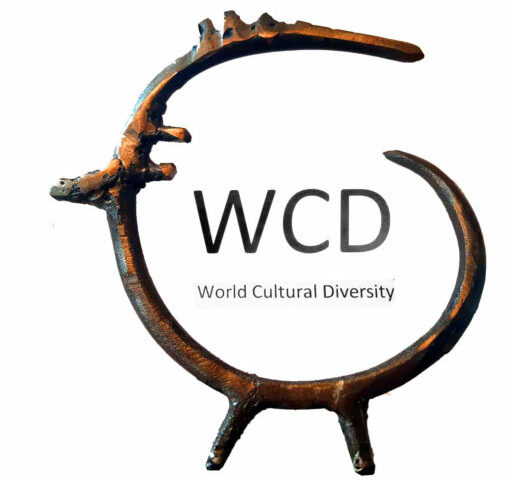Mrs and Mr Mafi, 60 minutes, 2023, World Cultural Diversity, France, Iran
It is a documentary written, directed and produced by Mina Rad, edited by Shahrouz Tavakol.
The letter of Albert Camus for his teacher in 1957 after the Nobel price:
« …This is an occasion for me to tell you that, you have been always get you are still for me, and also the generosity of your heart that you put in the work, and all are still alive in me. Even though the years have passed, I am still your student who is conscious of all your work….. »
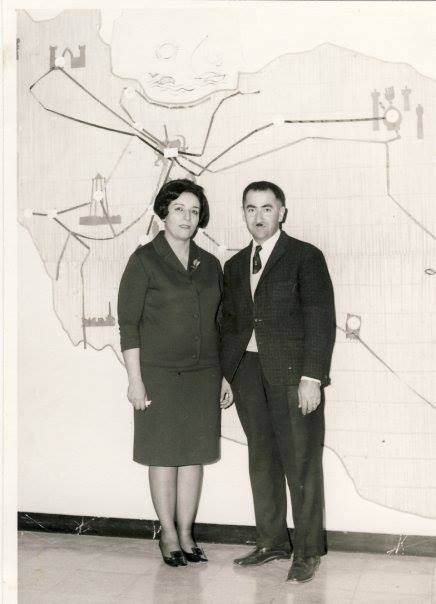
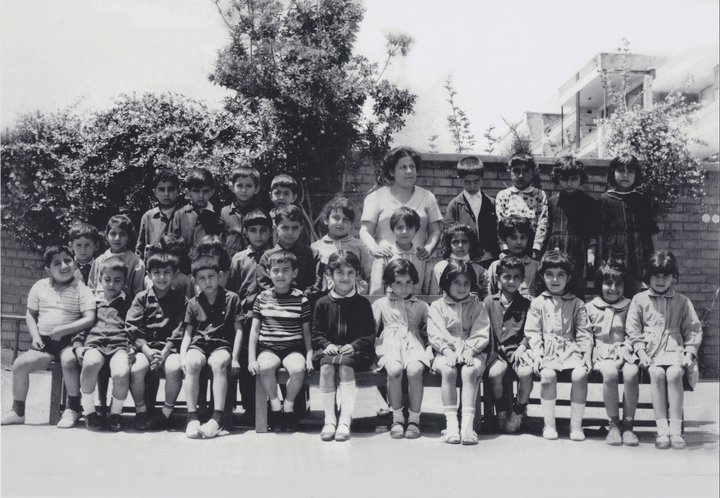
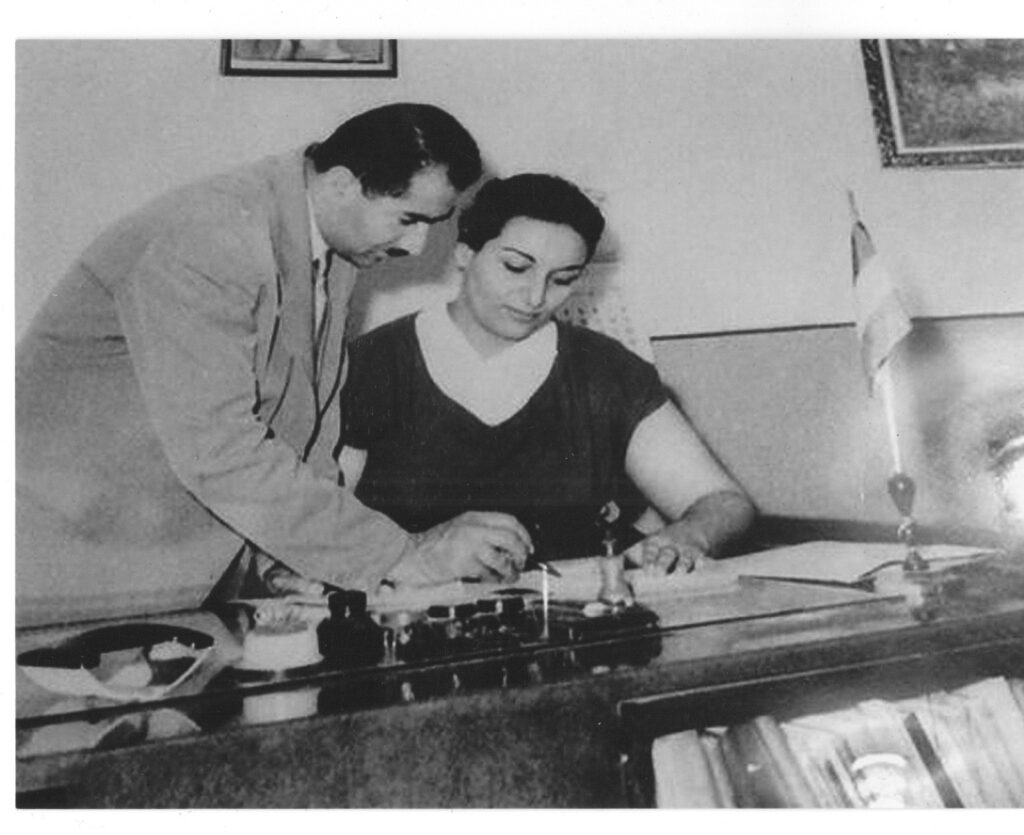
Short synopsis in English
I returned to my home town Iran and traced the history of Iran through the life of Mr and Mrs Mafi, the director of my primary school, and his wife. This film goes back over the life of Mrs and Mr Mafi, the founders of the encyclopedia for children and the director of the exemplary Mehran primary school. This couple lived as resistant and avant-gardists during a whole century. They knew how to bring culture to Iranian society. The life of Mrs and Mr Mafi recounts the history of the modernization of Iran over the last 90 years.
This film recalls the history of Iran during a century through the life of a couple who had the strategy to construct better future for Iran through culture.
This documentary is a journey through nearly a century of history of modernization of Iranian education and based on rare archives.
Synopsis en français
Mrs and Mr Mafi, raconte à la fois l’ histoire du couple Mafi qui ont crée une école exemplaire, Mehran, l’ école de mon enfance en Iran et l’ histoire d’ un siècle de l’ éducation en Iran, mon pays natal. Ce film est fabriqué durant 9 ans avec des archives rare sur l’ histoire de l’ Iran. Dans ce pays en evolution, je reviens sur le pas des hommes qui ont souhaité un meilleur avenir pour les enfants de ce pays à travers de l’éducation.
C’est cette lettre d’ Albert Camus que j’ avais en mémoire en réalisant ce film :
Lettre qu’Albert Camus à son instituteur, 19 novembre 1957 après le prix de Nobel
« Cher Monsieur Germain,
J’ai laissé s’éteindre un peu le bruit qui m’a entouré tous ces jours-ci avant de venir vous parler de tout mon cœur. On vient de me faire un bien trop grand honneur, que je n’ai ni recherché ni sollicité. Mais quand j’en ai appris la nouvelle, ma première pensée, après ma mère, a été pour vous. Sans vous, sans cette main affectueuse que vous avez tendue au petit enfant pauvre que j’étais, sans votre enseignement, et votre exemple, rien de tout cela ne serait arrivé.Je ne me fais pas un monde de cette sorte d’honneur.
Mais celui-là est du moins une occasion pour vous dire ce que vous avez été, et êtes toujours pour moi, et pour vous assurer que vos efforts, votre travail et le cœur généreux que vous y mettiez sont toujours vivants chez un de vos petits écoliers qui, malgré l’âge, n’a pas cessé d’être votre reconnaissant élève.
Je vous embrasse de toutes mes forces.
Albert Camus »
Intention / direction
This is a film that shows visiting a primary school after 45 years and makes it come alive by showing archives, films and photos. The spirit of the past has become the reality in this documentary. I filmed Mr Mafi at home, at, the encyclopedia office, at the art exhibition, and in the street. After his departure, his two daughters offered me Mehran school‘s archives the photo albums, the films, and Mr Mafi’s handwriting, This film is a journey through the archives and the narration of Mr Mafi, her daughters, the Mehranis school, the collegues of Mafi at encylopedia office, the friends with whom Mr Mafi was going to climb the mountain every morning, the social network community of Mr Mafi as Mehran school on facebook, ….My narration of the story and my visits to the primary school guide us to the journey..
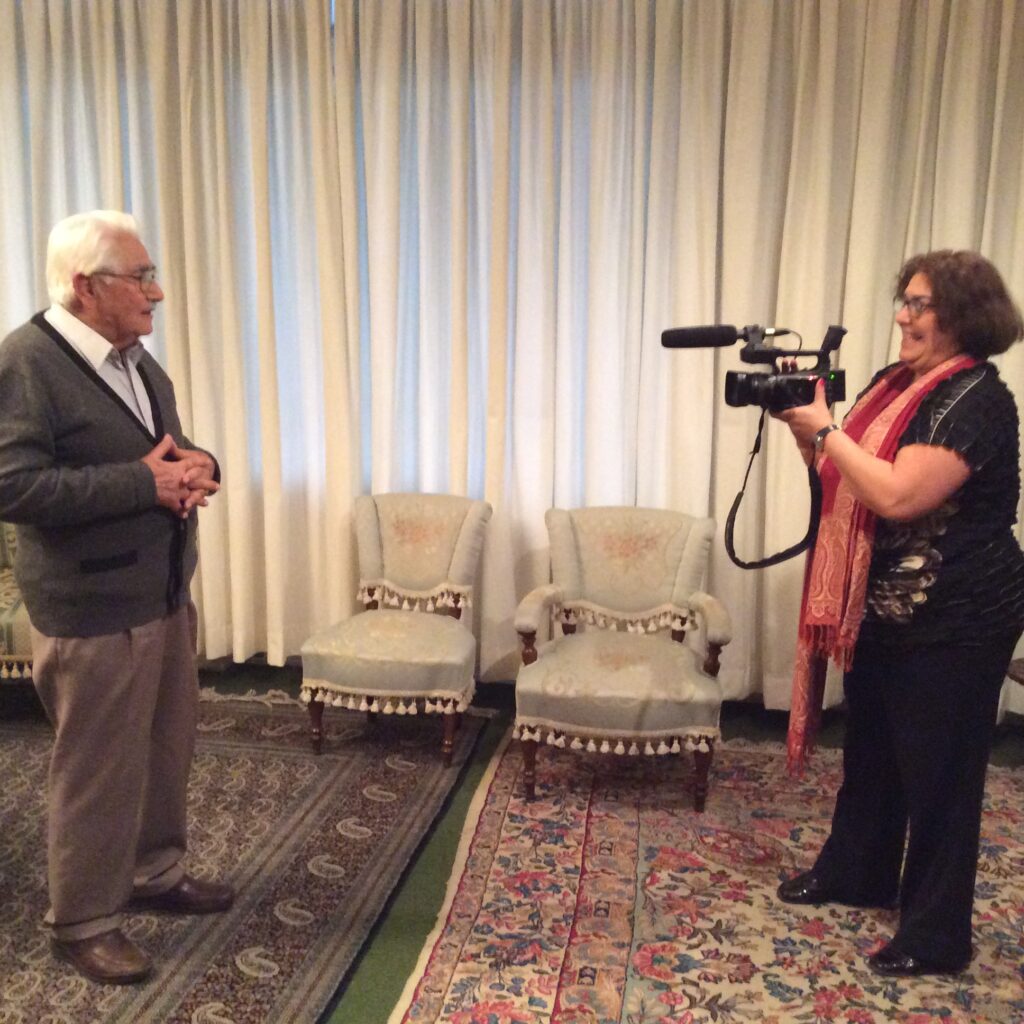
A film between past and present
This is a film from past and present. There is a correspondence between past and the present.
The story of Mehran school is told by the voice of Mafi from the archive photos and archive film of the school. I went to Mehran school with the graduated students and I filmed the empty school and classrooms. We sang the songs and we went to the classrooms after 45 years, we wrote on the blackboard.
The story of Mehran school is shown by the film of Mehran school of today, archive photos and narration of Mr Mafi. The story of the past will be narrated on the street and school of Tehran that I filmed today.
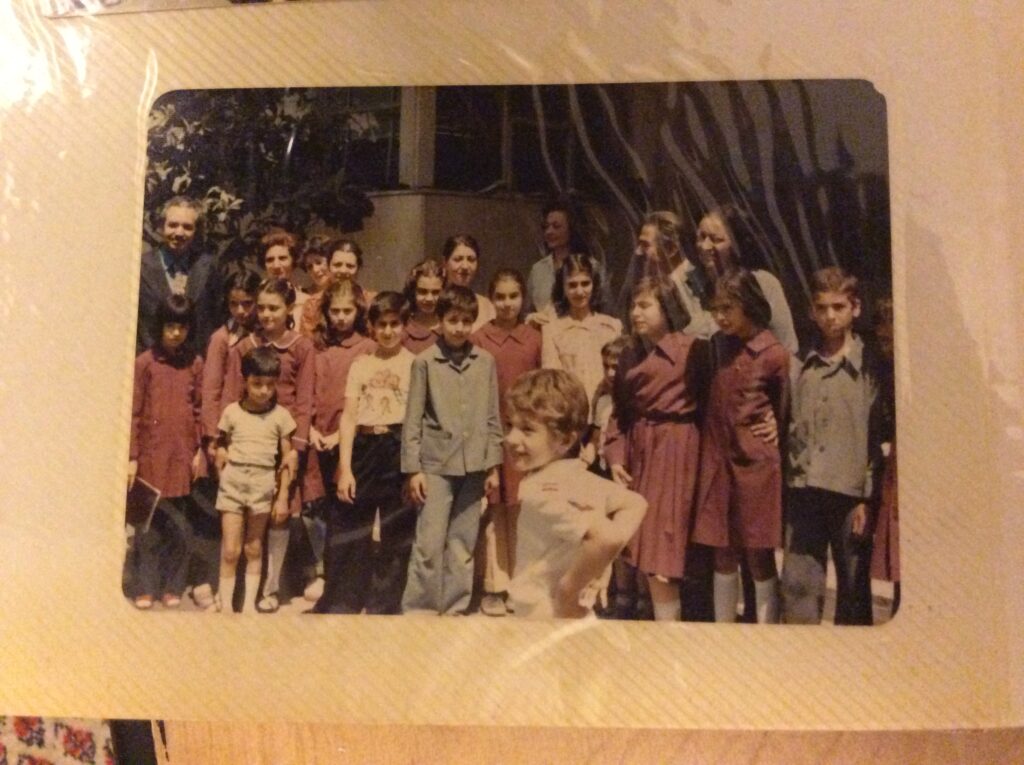
The Motivation of Filmmaker :
I left Iran, my home country, in 1982, by walking through the mountains accross the Iranian and Turkish borders in order to become a political refugee in France. I wanted to live freely, study at university and become a journalist and reporter, my ideal model was Oriana Fallachi, the Italien journalist and writer. Since childhood, I had read Oriana Fallachi’s book and I wanted to become a journalist. At my primary and secondary school, the bilingual (Persian and English) Mehran school, I was in charge of the school wall journal which was in English and Persian. Every year, on Hans Christian Anderson’s birthday, called the book day, I used to prepare a special edition on Hans Christian Anderson.
In France, I had to learn French. I studied history and journalism in Paris. While, I was doing my master about the image of the Iranian revolution in “Le Monde” newspaper, Paul Balta, the journalist for “Le Monde”, found out about my old dream of becoming a journalist and helped me to make my first step as a freelance journalist. Finally, and I became a journalist and a war reporter in Tadjikistan during the civil war in 1991. During of all those years of studying and working hard, I knew that there was a force that was pushing me to go forward and to continue. I had the feeling that this force came from my way of learning at Mehran primary and high school, and thanks to its method.
I was living in exile and I could not go back to my home town. After being a war reporter, I became a cultural reporter and an international music journalist. I replaced my home country, that I had lost as a political refugee, by the world of music. Every time I travelled to a new country to do my report, I thought of it as my home town, and every time I realised how much I really missed my own country.
Finally, in 2002, after 20 years of living in exile, there was a political change in Iran and the condition permet that I could go back to my home town.
The first day after my arrival in Tehran, I went to visit the musem of the child. By chance, I realised that there was an exhibition on the exemplary school that built the system of education in Iran. When I went into the museum, I saw a big portrait of my school director Mr Mafi and his wife hanging on the entrance wall. By visiting the museum I realised that during my childhood I had been to an exemplary school and that its teaching method was built through the hard work of a couple who were avant-gardist for their time. By visiting the exhibition, I realised, how they had been doing benchmarking around the world And that they had travelled to different countries, England, the United States of America, Holland and Sweden, and they had selected the best method for Iran. Also that Mr and Mrs Mafi had brought the best method of teaching art, languages, and science to Iran and that their aim was to give culture to Iranian children. I saw how the couple had founded the creation of the first encylopedia for children in Iran since the Iranian revolution. Since the ministry of Education of the Islamic Republic of Iran had taken Mehran school away from Mr and Mrs Mafi, they had had to rent the school from the ministry for a small amount of money. I realised how Mr and Mrs Mafi were compared to their old School and watched the children going to classes and being happy and that what they had built was still a school.
I was impressed and I knew how much I owe to my education and my hard working character to them. I decided to find them and meet them. I went to their home. Mrs Mafi had died but I found Mr Mafi. And every time I used to go back to Iran I met Mr Mafi.
On every visit I discovered how avant-gardist their way of life was for the time. I discovered, how resistent they were during all their life.
Ten years later, in 2012, I became a film director. I made a film, about double immigration, that shows how you can immigrate and become successful. I sent this film to a documentary film festival in Iran. My film “ for me the sun never sets” was selected at the festival and I got invited as a French film director to my home country that I had left by walking 30 years before.
In the plane, while I was flying to Iran, I could see the mountain that I had walked through 30 years before, to leave my country. I told myself if my film won the prize in the film festival, I would leave the prize in Iran and, I would offer the prize (2000 two thousands dollars) to the my primary school director to thank him for all his effort in creating a better world for the children. I thought that, if I had become what I was today, it was thanks to the education that I got at Mehran school.
During three weeks after the festival, I followed Mr Mafi in his activities and I filmed him. I went with him to his daily meeting at the NGO that he and his wife had built to create an encylopedia for children. I followed him at the painting exhibition that the NGO had organised to finance the encylopedia. I also spent a week at his house, talking to him, filming this great time of talking. With a lot of insistence, he accepted to talk about his life. I filmed and discovered the life of a man who had been an avant-gardist for nearly a century.
I filmed him and I realised how he had worked hard to become what he was today. He also told me about Mrs Mafi’s life and I realised that Mrs Mafi had come from a well-educated family. That his father and grand father had built the first hospital in Iran and that they knew about French culture and language at the end of the 19th century.
I promised to go back and film him in spring and continue the talk about his chef d’oeuvre of life, the creating of encylopedia for children.
I came back to Paris. I received a call from Mr Mafi. He called me after 3 weeks and asked me when I was going back to continue filming him. I told him in 1 or 2 months. He Told me it will be too late . Mr Mafi died a month after his call, in his garden.
I returned to Iran, Mr Mafi was not there. I went to film Mehran school that was still the same. With a group of Mehran school friends, we went to Mehran school, we sang the song, we visited the classroom, and I filmed all these. We lived with our own fantomes at the school. We travelled through the time and felt how tasteful it was to be a Mehrani, having received education at Mehran school.
I went to his home and talked with his daughters. They offered me the archives of their father concerning school, creating the encylopedia.
The life of Mr and Mrs Mafi is an exemplary life and they have a universal message in their life. Mr and Mrs Mafi gave us education and the social and human values, like : the art is as important as science, the equality of right of being man and woman, respecting the work of the writers and scientist, importance of knowledge and reading , ….
Through this film I want to show this value in a universal language and turn it back into history with a documentary film. When I offered my prize to Mr Mafi, I also offered a book that he and Mrs Mafi had offered me for my work at school 45 years ago and I told him, with this prize I wanted to offer in return, values that he gave to all Mehranis. These materials are not only the archive of Mr and Mrs Mafi’s life. But they can be considered as the archive that can retrace the modernisation of Iran for the last one hundred years.
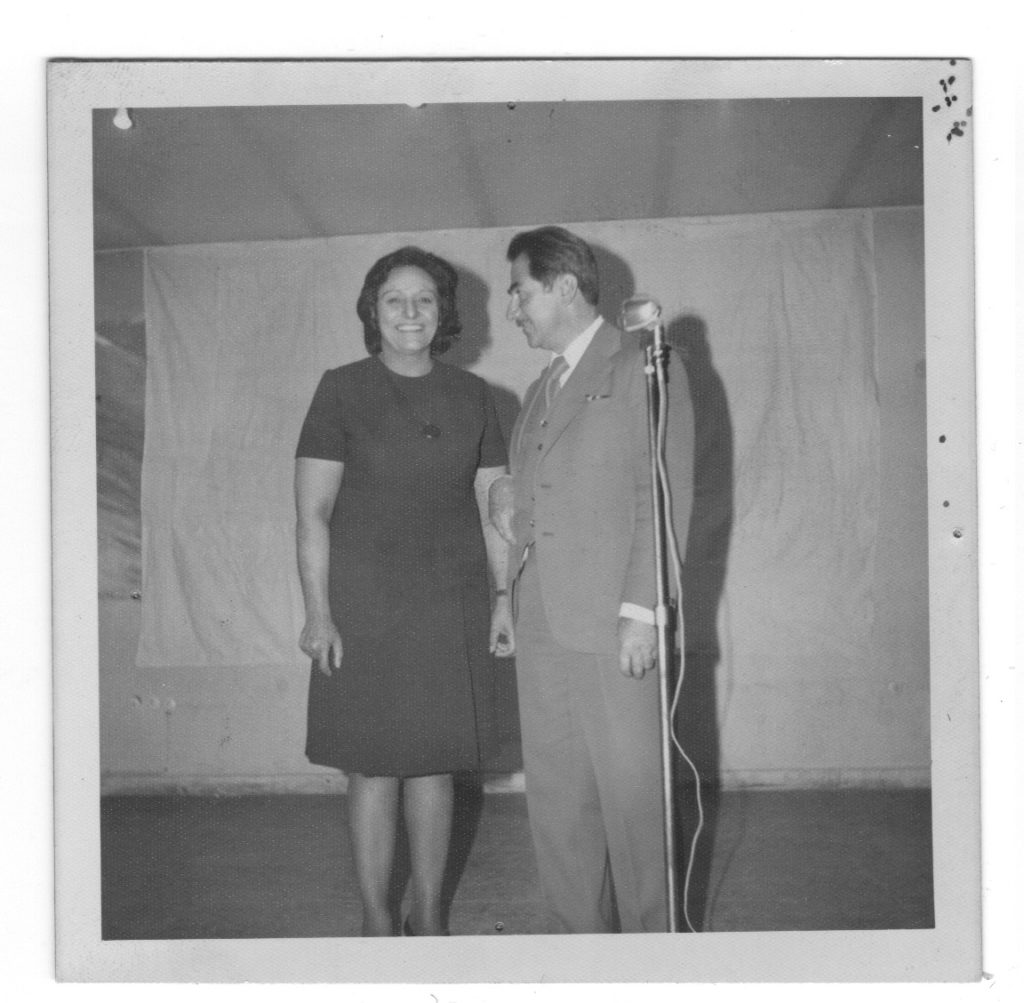
More information about Mrs and Mr Mafi
History of Mr and Mrs Mafi
Mr Yahya Mafi was originally Kurdish. His father was sent to exile from Kurdistan to a village called Alamut in the centre of Iran, by Reza Shah Pahlavi at the beginning of the 19th century. For making the national gouvernement, Reza Shah Pahlavi was obliged to establish the borders of Iran. That’s why, he replaced some members of tribales like kurdes in different part of Iran.
Yahya Mafi’s father became a farmer and got married in a small village. Yahya Mafi went to school in Alamut village and then he went to high school in a small town in the north of Iran near the Caspian sea where his uncle was living. He used to walk 5 kilometres everyday to go to school and 5 kilometres to come back.
When he got his baccalauriat, his father sent him to the capital, Tehran, to work in the office of the son of the feudal of the village MR Amidi Nouri. Yahya Mafi worked hard to show what he was worth and he finished by becoming assistant to the lawyer and chief editor of the magazine that he was directing. The magazine called « DAD » in Persian means « justice ». Yahya Mafi became an intellectual defending Mosadeg, the nationalist who nationalised Petrol in Iran.
Nouri’s wife, the director of Yahya Mafi, saw Mafi as an intelligent man and introduced him to a girl from an educated family named Sohrab. The Sohrab family had been doctors for two generations and they had studied in France during the 19th century. The Sohrabs built the first hospital in Iran and in Tehran. Yahya Mafi married Masoumeh Sohrab, who had a master in education and was becoming a secondary school teacher. Yahya and Masoumeh Mafi formed a couple whose life was dedicated to the evolution of culture in Iran.
They decided to build an exemplary primary school in Iran. They travelled to do benchmarking and visited the best schools in Russia, the UK, and America…They got inspiration and founded Mehran school based on their best observation.
They buit an exemplary school, named Mehran, which I attended, in Iran. This school was exemplary, because it was unique school in Iran where art and language were as important as the science. Theatre, music, art, English language were important materials. We had Persian in the mornings and music and English in the afternoons. The school was a mix school were boys and girls were studying together. This school was closed after the Iranian revolution, in 1979. But Mr and Mrs Mafi kept their way of being avant-gardist and they founded the NGO to create the first and unique encyclopaedia for children in Persian language in Iran. The creation of this encylopedia has been a tool to resist, to give culture to the children and participate in the modernisation and culture of Iran.
The goal of this encyclopaedia is to reach 30 volumes. The 18 volumes of this encylopeida exist at present. The Mafis dedicated their entire life to this work and now a group of contributors are still working on it. More than 300 personnes, like the scientists, historians, grafistes, the teachers, … are working freely for this encyclopaedia.
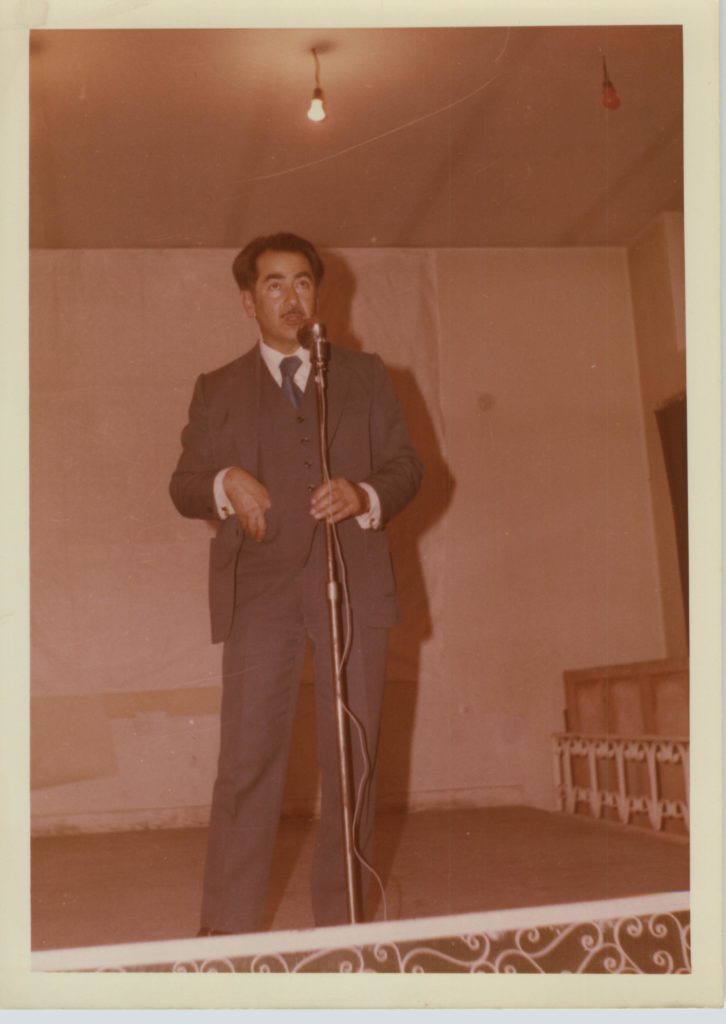
This film includes different periods :
– There are several periods in the film. The art of making this film is to play with time.
– Time of dialogue : Mr Mafi tells the history of the life of Mr and Mrs Mafi (15 hours talking with Mr Mafi)
– Time of archive : Mr Mafi talks about the past and the archive will show and illustrate what he tells by showing the street of today and the photos and the film of the past
– Time of the life of Mr and Mrs Mafi : The film relates the personal life of a couple who sacrified their life to culture and education
– Time of my life as a former student of this school, having left in exile for 35 years and going back to my home town
– Time of the three Iranian revolutions : three revolutions in Iran from the constitutional revolution 1906, to what Shah of Iran called “the white revolution” 1962, and the islamic revolution of Iran 1979.
– Time of narrating the story by a voice over
This film is a permanent correspondent between what Mr Mafi said during the long talk we had and the archive photo and film that complete his talk.
Narration
-The film is narrated in the first person. I tell the story with my voice in English and I make the link between the plans.
Language :
Language of the film is English. Mr Mafi talks in Persian and the narration is in my mother language persan.
Music
Music : there is also be an evolution in the music ; I will be choosing the evolution of Persan music through a century and is showing the modernisation of the music with time.
A journey through the encylopedia
The key point in the life of Mr and Mrs Mafi is the creation of the encylopedia. The life of Mr and Mrs Mafi and the history of Iran is narrated through the evolution of the encylopedia. Different steps in the life of Mr Mafi are a journey through the encylopedia. The film is rythmed through the encylopedia that the Mafis created. Each step of the film is illustrated, narrated, coloured through a page of the encylopedia with its writing, its graphics and its paintings. In different steps of the film, spectators can see the different pages of the encylopedia. There exist 18 volumes of encylopedia today.
Every page of encylopedia marks a special turning of the story, different plans and period of film.
Discovery of the characters little by litte like a puzzle
-The film is narrated in the way that I discovered the Mafis and his resistence throughout his life. Little by little, the spectators will discover his character through the photos, films, his speech the narration and his secret plan to resist to the Islamic Republic through the encyplodedia. I as narrator , I am a personage in the film and talk about my experience in voice over.
